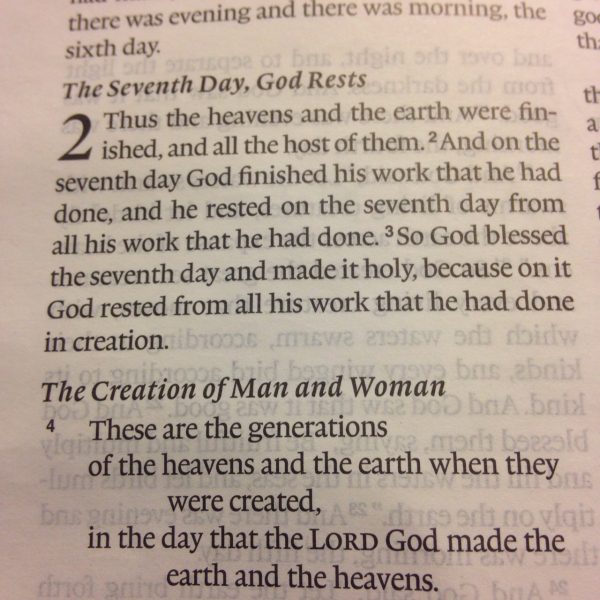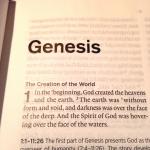God causes Adam to fall into a deep sleep and removes a rib from his side. He fashions the rib into a wife for Adam. When Adam awakes and God presents the woman to him, he says something which the translators of our English version saw fit to arrange as if it were a poem or a song. In essence, Adam is overcome with joy at the sight of his wife and exclaims, “this is now bone of my bone and flesh of my flesh.” After surveying the other creatures which God had made Adam sees that this woman is what he is and was taken from him.
The writer says it is for this cause a man shall leave his father and mother and be joined to his wife. He states that for future generations, they will leave the home in which they were raised to be joined to a wife. “The two shall become one flesh.” The man and woman who previously lived separate existences become one when they are married. This phrase becomes the Bible’s way of explaining the marital union and is the basis for its permanence. When Jesus is asked about divorce, he appeals to this phrase to argue that marriage should last a lifetime. In Paul’s lengthy discussion of marriage in Ephesians 5:22-33, he references this passage as well. The writer of Genesis intends to show that the marriage relationship between a man and a woman should last until one of them dies.
“The man and the woman were naked and not ashamed.” This feels like a throwaway piece of editorial at the end of the chapter, but it serves as a reminder that Adam and Eve were still in their original innocence. They obeyed the Lord God’s command to not eat from the tree in the middle of the Garden. They lived at peace with God and with each other. The stain of sin and guilt and not entered into the world. “The man and the woman were naked and not ashamed” summarizes the beauty and innocence which characterized their existence and foreshadows the terrible events of the next chapter.













